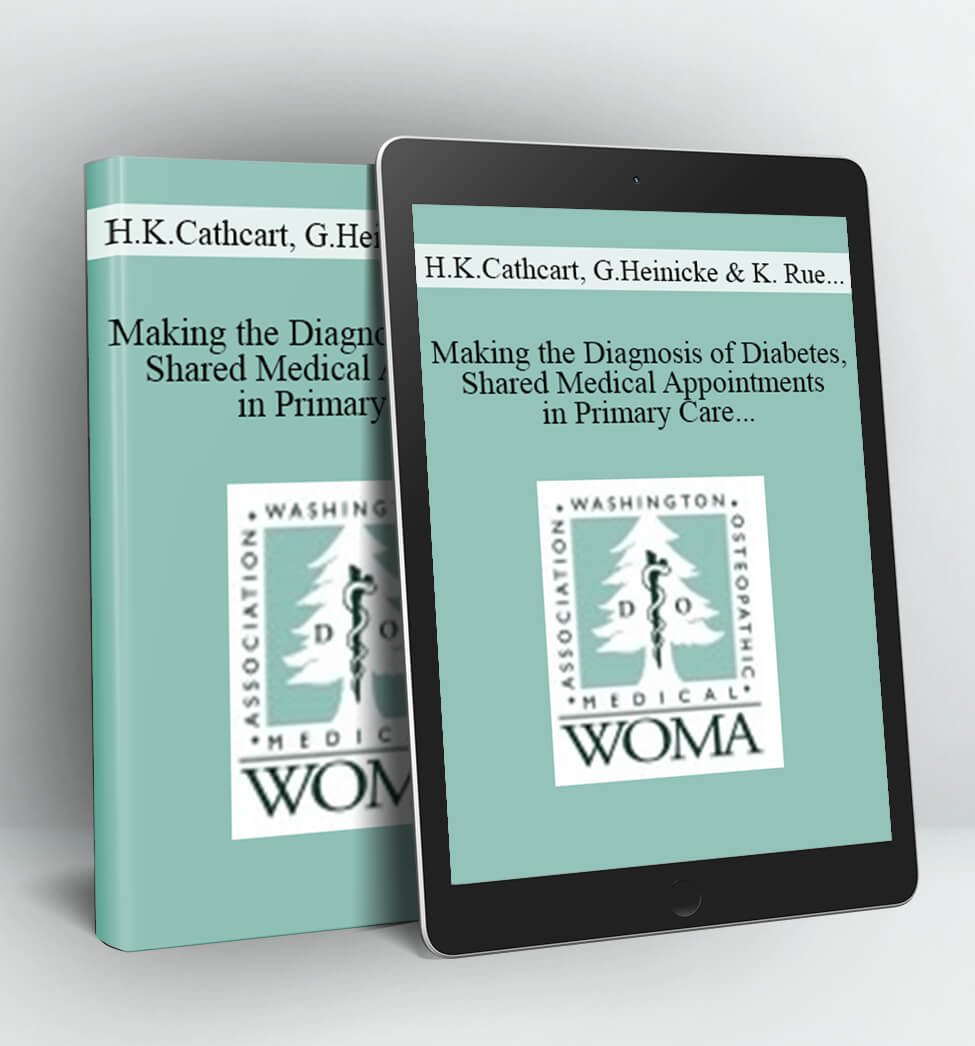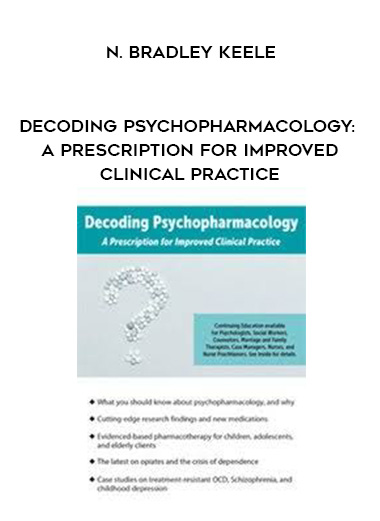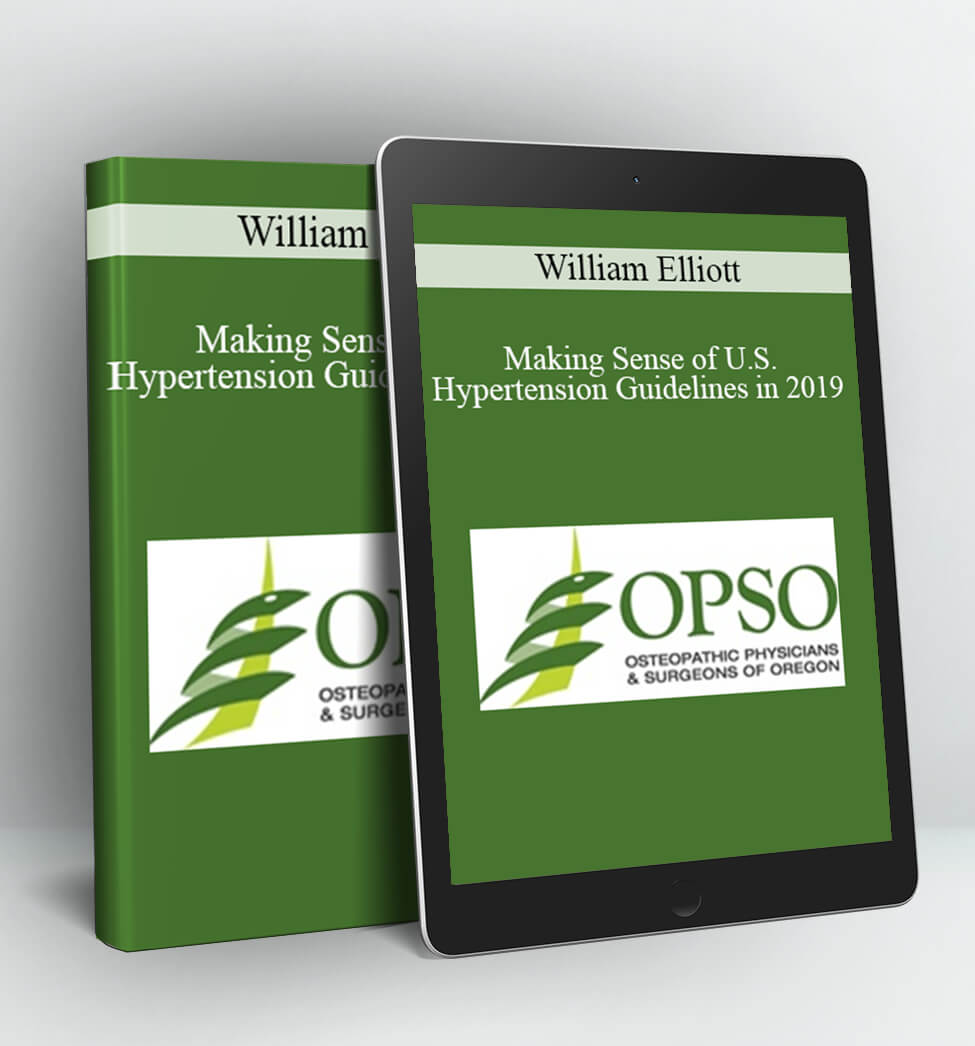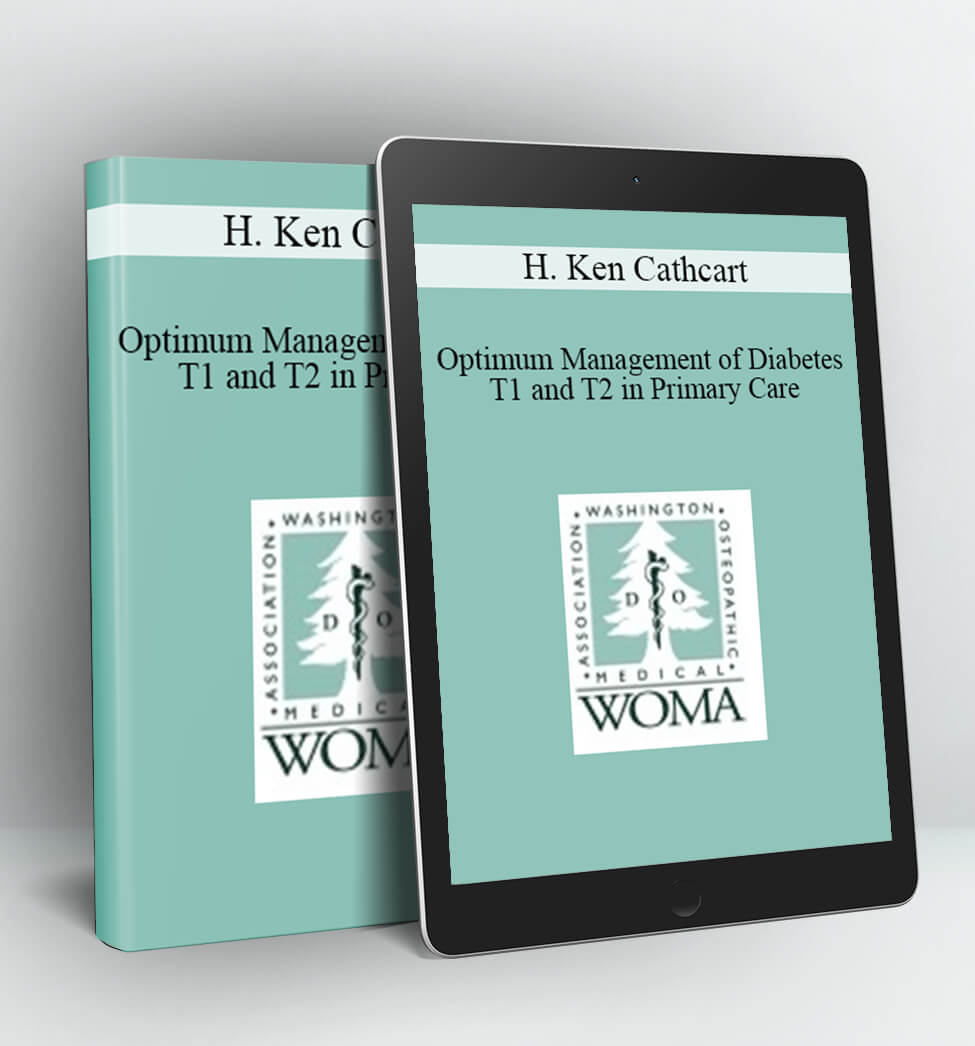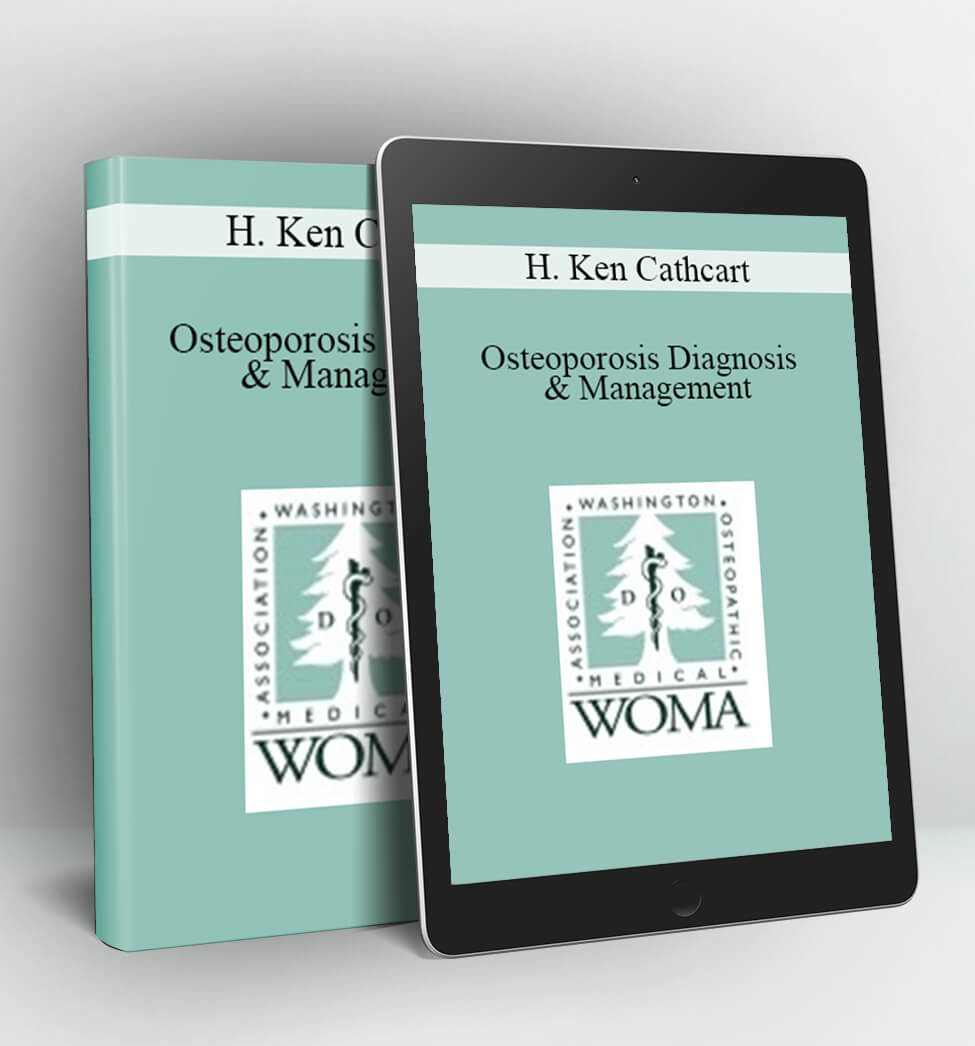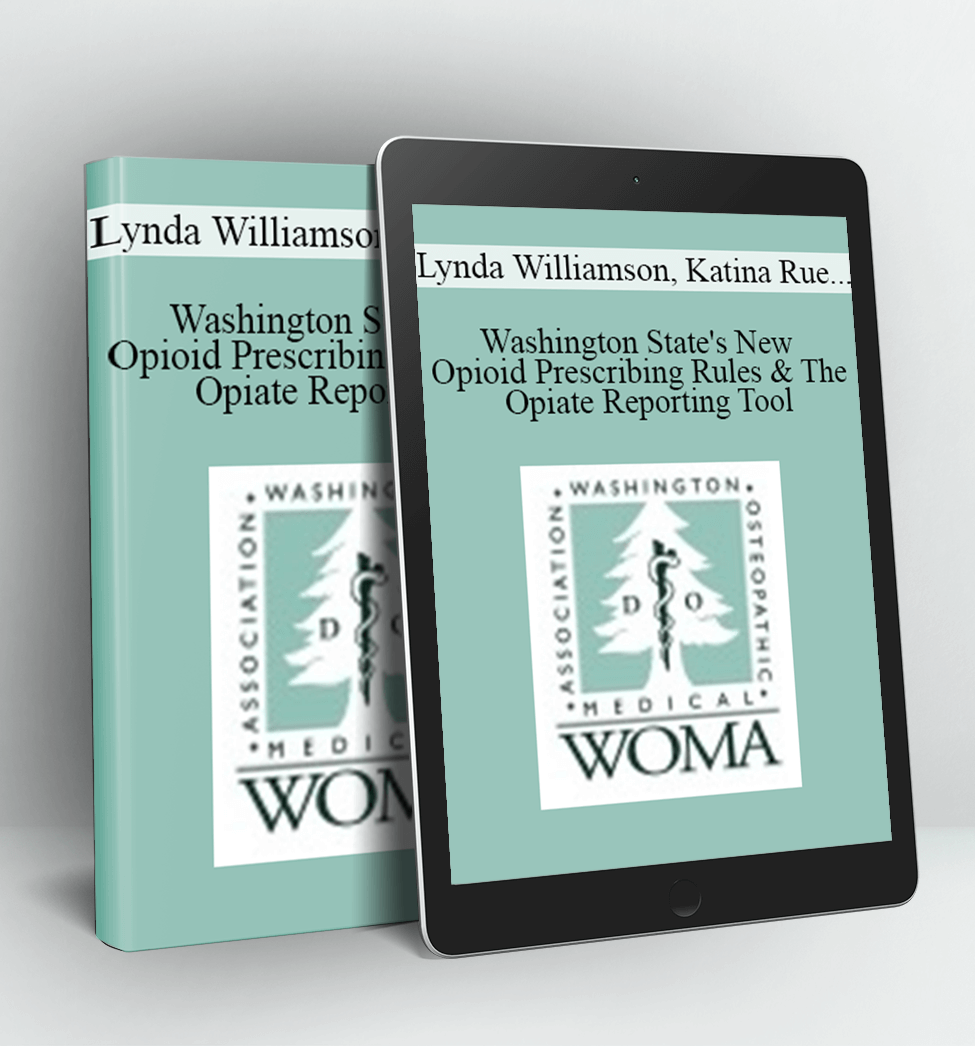
Making the Diagnosis of Diabetes, Shared Medical Appointments in Primary Care & Classes of Hypoglycemic Diabetic Medications – H. Ken Cathcart, Greg Heinicke, Katina Rue, Kim Wadsworth, William Elliott
- State Associations:
- WOMA – Washington
- Faculty:
- H. Ken Cathcart, D.O. | Greg Heinicke, DO | Katina Rue, D.O. | Kim Wadsworth, DO | William Elliott, M.D. Ph.D.
- Duration:
- 1 Hour 50 Minutes
- Expiration:
- Never expires.
Description
Making the Diagnosis of Diabetes Mellitus
The attendee will be able to use the FBS, the standard 2 hr glucose tolerance test, or the hemoglobin A1C test to make the diagnosis of diabetes; understand how to make the diagnosis of type 1 diabetes mellitus, type 2 diabetes mellitus, and LADA understand why it is important to know the difference between a type 1 diabetic, a type 2 diabetic, and a LADA patient.
Shared Medical Appointments in Primary Care
Shared medical appointments (SMAs), or group visits, offer an innovative, interactive approach to healthcare that brings a group of patients with common needs together with one or more healthcare providers in a shared appointment that is typically 90 minutes long, allowing participants to spend more time with the healthcare team. There is a growing discussion among providers looking for ways to enhance access and productivity in primary care, and SMAs have demonstrated improvement in access, cost, disease management outcomes, patient-centered care and provider satisfaction—achieving the Quadruple Aim. In this session, we hope to inspire you to design, implement and evaluate SMAs in your practice.
Classes of Hypoglycemic Diabetic Medications
This 50-minute session will briefly summarize the world’s epidemiological literature comparing the incidence of various cardiovascular endpoints in individuals with and without diabetes mellitus at baseline. Since it was originally thought that the primary mediator of increased cardiovascular risk among diabetics was simply their dysglycemia, several clinical trials were organized to test the hypothesis that more intensive glucose lowering would lead to a reduced risk of cardiovascular events; sadly, the results of these studies were inhomogeneous. In the last several years, long-term results of several of these studies have been published, which adds only a little clarity to the proposition that tight control of plasma glucose is beneficial. The most recent studies that suggest a cardiovascular benefit of more intensive glucose lowering are: EMPA-REG, LEADER, and SUSTAIN-6. At the risk of being disingenuous, because several of these included in their factorial design, an arm comparing blood pressure targets in the same patients (in whom glycemic control was separately randomized), it is possible to compare the effects of glycemic and blood pressure control, the latter of which appears to be more beneficial (as long as it is sustained). As a result, nearly all authorities now recommend a multi-pronged approach to reducing cardiovascular risk in people with diabetes. The best evidence for the efficacy of such an approach comes from the STENO-2 trial, done in Denmark, which showed not only improved cardiovascular outcomes in its original 7.8-year follow-up, but also reduced all-cause mortality when median follow-up was extended to 13.3 years.
Faculty

William Elliott, M.D. Ph.D. Related seminars and products: 3
Chair, Department of Biomedical Sciences
Pacific NW University of Health Sciences College of Osteopathic Medicine
Access Download Making the Diagnosis of Diabetes, Shared Medical Appointments in Primary Care & Classes of Hypoglycemic Diabetic Medications – H. Ken Cathcart, Greg Heinicke, Katina Rue, Kim Wadsworth, William Elliott right now!
Delivery Method:
After your purchase, you’ll get access to the downloads page. Here, you can download all the files associated with your order.
Downloads are available once your payment is confirmed, we’ll also send you a download notification email separate from any transaction notification emails you receive from Coursedownloads.

